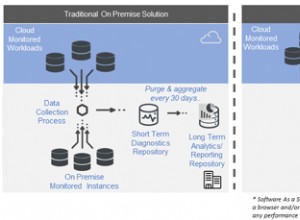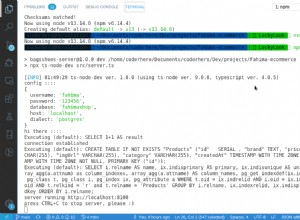Questo è il risultato del corretto funzionamento del codice. Ho un po' di tempo per postarlo ora nel caso possa aiutare qualcuno. È stato un po' difficile per me capire come funziona Bytea, ma alla fine è stato risolto. Cordiali saluti alla comunità.
#include <string>
#include <fstream>
#include <iostream>
#include <sstream>
#include "libpq/libpq-fs.h"
#include "libpq-fe.h"
#pragma comment(lib, "libpq.lib") /*!< Only for windows compilation */
int main(int argc, char* argv[])
{
ManageDB manager;
manager.conn = manager.ConnectDB(); // My manager, connects ok
const char* fileName = {"test.png"};
const char* fileNameOut = { "testOut.png" };
FILE* file = fopen(fileName, "rb");
if (file == NULL) cout << endl << "FILE WAS UNABLE TO BE READED" << endl;
fseek(file, 0, SEEK_END);
long int fileSize = ftell(file);
rewind(file);
unsigned char* buffRead = (unsigned char*)malloc(fileSize);
size_t bytes_read = fread(buffRead, 1, fileSize, file);
if (bytes_read != fileSize) cout << endl << "fread reading Error";
fclose(file);
size_t* sizeP = new size_t(fileSize);
const char* paramValues[3];
paramValues[0] = "1";
paramValues[1] = fileName;
paramValues[2] = reinterpret_cast<const char*>(buffRead); // type cast required to PQexeParams
const int paramFormats[3]{ 0,0,1 }; //0 = text, 1 = binary
const int paramLenghts[3]{ strlen(paramValues[0]), strlen(paramValues[1]), fileSize};
PGresult *res = PQexecParams(manager.conn, "INSERT INTO filebyte (id, filename, file) VALUES($1::text, $2::text, $3::bytea)",
3, /* params num */
NULL, /* let the backend deduce param type */
paramValues,
paramLenghts,
paramFormats,
1);
if (res && PQresultStatus(res) == PGRES_COMMAND_OK) cout << endl << "Inserted data to filebyte OK";
PQfreemem(res);
//************************download from DB*************************
const char* bytesFromDB = new const char[fileSize];
int sizeR;
// Table columns = id(text) | filename(text) | file(bytea)
const char* sentenceEx = "SELECT file FROM filebyte WHERE id='1'";
res = PQexec(manager.conn, sentenceEx);
if (res && PQresultStatus(res) == PGRES_TUPLES_OK)
{
sizeR = PQgetlength(res, 0, 0);
bytesFromDB = PQgetvalue(res, 0, 0);
}
else cout << endl << "Error at inserting file data in filebyte table";
string hex(bytesFromDB, 2, sizeR-2); //removing the first '\x' characters of the result.
// vars for converting to real bytes process
std::basic_string<uint8_t> bytes;
bytes.clear();
std::string nextbyte;
nextbyte.clear();
uint16_t byte;
// Iterate over every pair of hex values in the input string (e.g. "18", "0f", ...)
for (size_t i = 0; i < hex.length(); i += 2)
{
// Get current pair and store in nextbyte
nextbyte = hex.substr(i, 2);
// Put the pair into an istringstream and stream it through std::hex for
// conversion into an integer value.
// This will calculate the byte value of your string-represented hex value.
std::istringstream(nextbyte) >> std::hex >> byte;
// As the stream above does not work with uint8 directly, we have to cast it now.
// As every pair can have a maximum value of "ff",
// which is "11111111" (8 bits), we will not lose any information during this cast.
bytes.push_back(static_cast<uint8_t>(byte));
}
// string obj from bytes-"array"
std::string result(begin(bytes), end(bytes));
ofstream myFile(fileNameOut, ios::out | ios::ios_base::binary);
if (myFile.is_open())
{
myFile << result;
myFile.close();
}
else cout << endl << "Impossible to writte the file " << fileNameOut;
manager.CloseConn(manager.conn); //closes connection with database internally ok
PQfreemem(res);
free(buffRead);
delete sizeP;
free((char*)fileName[8]);
free((char*)fileNameOut[11]);
return true;
}





